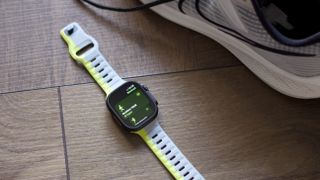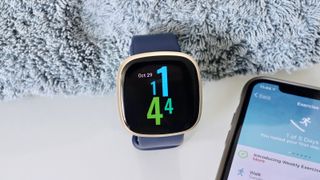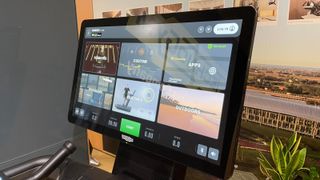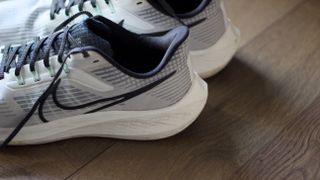How to walk 10,000 steps a day: Tips and tech you need to get your steps in
Conquer your fitness goal, maybe for the first time

If you want to walk 10,000 steps in a day, you need to put one foot in front of the other 10,000 times. But while the “how” of walking 10,000 steps a day is blindingly obvious in one sense, there’s a lot more to it than meets the eye. For some people, walking 10,000 steps might come very easily, perhaps even without thinking if your work involves a lot of walking or travel. But for others, some factors can make it more difficult, such as inclement weather, safety, fitness, health, mobility, and more.
The idea of walking 10,000 steps a day (roughly five miles for most people, but you can check our guide to find out the distance that’s right for you) can be a daunting and difficult challenge, especially for people who are overweight, recovering from an injury, or are restricted by disease or illness.
So if you’re starting out trying to tackle 10,000 steps a day, what are some of the things you can do to make life easier? For starters, you’re going to need at least some tech to make sure that you’re achieving your goals. That could be a smartwatch, one of the best fitness trackers, or even a pedometer.
When it comes to hitting your step goal (10,000 or otherwise), there are plenty of other useful tools and tips to help you get there. If you work from home, a standing desk or an under-desk treadmill can get you on the move. Maybe you need a walking plan to help break up the day into more manageable walks, or perhaps you just need some tips to incorporate more walking into your everyday life. So if you need help getting to that magic number, here are some of our top tips.
How to walk 10,000 steps a day
Get a fitness tracker

If you want to walk 10,000 steps a day, you need a good way to track your movement. Most of the best phones on the market will have a step counter, but they’re not tremendously accurate and you may not always have your phone on you. Picking up one of the best smartwatches or even a cheap smartwatch is one great way to add fitness tracking and step counting to your arsenal. You could go for a mainstream option like the Apple Watch Series 10, or a cheap Apple Watch SE 2. Other options include the Fitbit Versa, Amazfit’s Bip U Pro, or the CMF Watch Pro by Nothing.
If a smartwatch is out of your budget, then a fitness tracker is often cheaper, and you can often pick up a Fitbit or Xiaomi’s Smart Band 8 Pro for around $50 / £50 / AU$70.
If that’s still more than you’d like to pay, there are pedometers (simple, dedicated step counters) on Amazon for as little as £10/$12/AU$14.
Get the best Black Friday deals direct to your inbox, plus news, reviews, and more.
Sign up to be the first to know about unmissable Black Friday deals on top tech, plus get all your favorite TechRadar content.
Break up your steps into manageable chunks
As noted, walking 10,000 steps will come very naturally to some people, and others may already be hitting that number without even thinking. But for people who are looking to get started on a fitness journey, sometimes the easiest way to hit a goal is to break it down into more manageable chunks.
When it comes to how far 10,000 steps is in distance, the answer is broadly five miles. Walking that in one go might be a bit of a challenge, if not physically, then logistically because of time, or inhibiting factors like work, your location, or something else. A more realistic approach could be to go on a couple of different walks throughout the day. Here’s one example:
• Morning walk - 1 mile
• Lunch walk - 2 miles
• Evening walk - 2 miles
You could even do 2.5 miles in the morning, and another 2.5 miles in the afternoon. Realistically though, you’re going to accrue a certain amount of steps going about your daily life, so unless you live a very sedentary lifestyle, you probably don’t need to do five miles of walking every day. This is why having a fitness tracker or smartwatch is vital, there’s no point struggling to walk 5 miles every day if you’re already walking 3,000 steps a day, and just need to get in another 7,000 (3.5 miles). Just remember that walking 2,000 steps is roughly a mile in distance, so you can calculate your own required distance to bridge the gap to 10,000 steps each day.
But how can you make walking those miles easier, safer, and more accessible?
UDTs, standing desks, and Netflix

Walking a few miles outside is all fun and games if you live in a temperate climate with plenty of daylight, but what if you live in Scotland like me? For an abundance of reasons, walking outside to get those steps in isn’t always an option for some people. That could be because of the weather, allergies, traffic, lack of green spaces, or simply because there’s not enough daylight.
One of our picks for the best treadmills could be a handy way to get your steps in at home and would double as a training aid for running. However, if you’re low on space, or just want to walk, the best under-desk treadmills on the market could suit you much better. Amazon is packed with offerings, some as cheap as £139 / $99 / AU$195, and many of them are foldable and portable, so you can hide them away when they’re not in use.
As the name suggests, they can also be used under the best standing desks on the market so you can walk while you’re at work. If you can afford the outlay, a walking pad and a standing desk is the easiest ways to get your steps in during the working day. If you find it too hard to type or walking is distracting, you can always plonk your pad down in front of the TV after work and walk while watching the best Netflix shows, YouTube, or anything else you can think of.
Treadmills at the local gym

If you really don’t want the outlay or the physical burden of owning your own treadmill, then you can always pop down to your local gym and get your steps in there. As with walking in the house, this will alleviate many of the struggles of putting the work in outdoors. A good gym is likely to have some pretty cutting-edge gear too, so Netflix and the like might still be there to carry you through your workout.
Get the right footwear

If you’re serious about getting steps in – on the road or a treadmill – then you’ll need a decent pair of trainers. Some picks for the best gym shoes might help you here, but really the best running shoes are probably better suited to the task. Find what works for you, but ideally, you’ll want plenty of cushioning and support, especially if you’re new to exercise, as both are key to avoiding injury and reducing fatigue.
Apply the principles of NEAT
As you can see, the beauty of trying to walk 10,000 steps is that it doesn’t really matter how you get the steps in, because the movement is all that counts. To that end, there are a series of tiny lifestyle changes you can make that add up to a big overall impact. If you’ve ever tried to lose weight, you might have heard of non-exercise activity thermogenesis. NEAT is all about increasing the energy we burn outside of sleeping, eating, and exercising.
A good example might be standing instead of sitting at your desk or taking the stairs instead of the elevator. It’s a principle you can also apply to walking 10,000 steps. By simply being mindful of your activity and choosing to do a bit more legwork, small gains can add up to your daily steps goal before you know it.
Do you commute to work? While ditching the train or bus altogether might not be an option, could you consider getting off a stop earlier, or joining a stop later? Driving to pick up some groceries? Why not park a little bit further away from the door of the supermarket? Take the stairs where you can, or set an alarm or timer to remind you to stretch your legs every hour. Some smartwatches like the Apple Watch even have built-in time-to-stand reminders you can use to keep you on your toes.
In short, walking 10,000 steps a day doesn’t have to be about slogging a five-mile walk every day, rain or shine. With just a few subtle lifestyle tweaks and some helpful tech, you’ll find those steps racking up in no time, along with all the health benefits you might expect.
You may also like

Stephen Warwick is TechRadar's Fitness & Wearables writer with nearly a decade of experience covering technology, including five years as the News Editor of iMore. He's a keen fitness enthusiast and is never far from the local gym, Apple Watch at the ready, to record his latest workout. Stephen has experience writing about every facet of technology including products, services, hardware, and software. He's covered breaking news and developing stories regarding supply chains, patents and litigation, competition, politics and lobbying, the environment, and more. He's conducted interviews with industry experts in a range of fields including finance, litigation, security, and more. Outside of work, he's a massive tech and history buff with a passion for Rome Total War, reading, and music.
Most Popular

